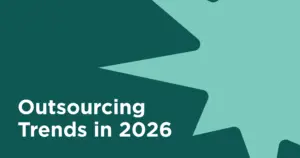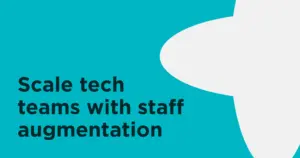In today’s rapidly evolving tech landscape, the concept of working remotely has become increasingly popular, especially among developers. As a remote developer, you have the unique opportunity to design your lifestyle and work from virtually anywhere in the world. However, being successful in such an environment requires more than just technical skills; it involves a deep understanding of how to navigate challenges like communication barriers, time management, and staying updated with the latest industry trends. This comprehensive guide explores various strategies that can help you thrive as a remote developer.
1. Establish a Robust Technical Setup
Success as a remote developer starts with having the right tools and environment. Ensure your home office is equipped with high-speed internet, a comfortable chair, a desk at the right height, and all the necessary hardware and software to perform your duties efficiently. Invest in a good quality laptop, external monitors, and ergonomic accessories that support a healthy work posture. Reliable, high-quality tech is non-negotiable as it reduces downtime and helps maintain productivity.
2. Master Time Management
One of the biggest challenges of working remotely is managing your time effectively. Without the structured environment of an office, it’s easy to either procrastinate or overwork yourself. Here are a few tips to master time management:
- Set Clear Boundaries: Define your work hours and communicate them with your team and family. Stick to these hours as closely as possible to maintain a healthy work-life balance.
- Use Time Blocking: Allocate specific blocks of time to different tasks and use tools like Google Calendar or Trello to keep track of your schedule and deadlines.
- Take Regular Breaks: Use techniques like the Pomodoro Technique (working for 25 minutes followed by a 5-minute break) to keep your mind fresh and avoid burnout.
3. Enhance Your Communication Skills
As a remote developer, you won’t have the luxury of face-to-face communication, which can lead to misunderstandings or information silos. To overcome this, you must:
- Over-communicate: When in doubt, it’s better to share more information about your progress and challenges than less. This keeps everyone on the same page and builds trust.
- Utilize the Right Tools: Familiarize yourself with communication and collaboration tools such as Slack, Zoom, and Asana. These tools are essential for staying connected with your team and managing projects effectively.
- Schedule Regular Check-ins: Have consistent meetings with your team and manager to discuss progress, obstacles, and feedback. This not only helps in alignment but also in building relationships with your colleagues.
4. Keep Learning and Stay Updated
The technology field is constantly changing, and as a remote developer, you need to keep up with the latest trends, tools, and technologies. Here’s how you can stay updated:
- Follow Industry Leaders and News Sites: Platforms like Twitter, Medium, and GitHub can be great resources to see what thought leaders are discussing and which projects are gaining traction.
- Participate in Online Communities: Join forums and communities related to your technology stack on Reddit, Stack Overflow, or specialized tech community sites.
- Continuous Education: Regularly set aside time for learning, whether it’s through online courses on platforms like Coursera or Udemy, or by attending virtual conferences and webinars.
5. Build a Strong Online Presence
As a remote developer, your online presence is often your first impression. It can help you network with other professionals, learn about job opportunities, and demonstrate your skills. Enhance your online presence by:
- Maintaining an Updated LinkedIn Profile: This is crucial for networking and job opportunities. Make sure your profile is detailed and reflects your latest skills and accomplishments.
- Contributing to Open Source Projects: This not only shows your commitment to learning and growth but also showcases your skills to potential employers or collaborators.
- Blogging or Streaming: Share your knowledge by writing articles or streaming live coding sessions. This can establish you as an expert in your field and lead to professional opportunities.
6. Cultivate Emotional Resilience
Working remotely, particularly in isolation, can be challenging over long periods. It’s important to develop strategies for maintaining your mental and emotional health:
- Set up Virtual Coffees or Hangouts: Regular casual meetings with colleagues can help in creating a sense of belonging and reduce feelings of isolation.
- Maintain a Routine: Having a daily routine can provide a sense of normalcy and control.
- Seek Professional Help if Needed: Don’t hesitate to seek the help of a professional counselor or therapist if you find yourself overwhelmed.
Conclusion
Becoming a successful remote developer requires a blend of technical skills, effective communication, continuous learning, and personal resilience. By adopting these strategies, you can not only succeed in your current role but also pave the way for future opportunities in the remote development world. Embrace the flexibility and possibilities that come with being a remote developer and use them to build a rewarding career.
At Yoocollab, we provide all of these services and more to help our students succeed in the world of remote development.
Contact us today and see how we can help you take your career to the next level!




